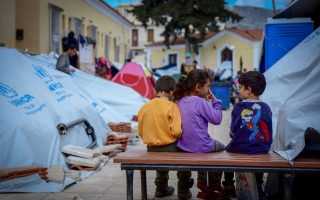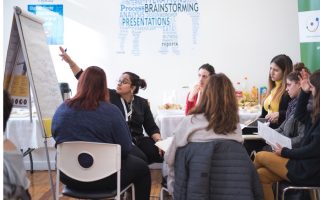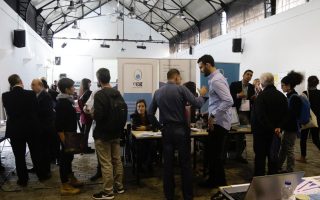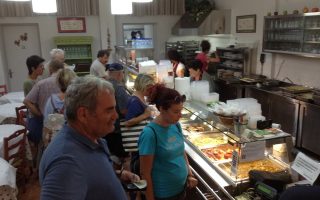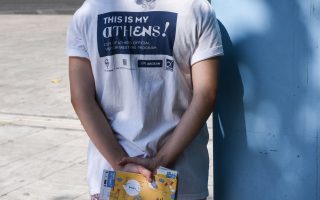NGO Home Project taking refugee kids off the streets of Athens
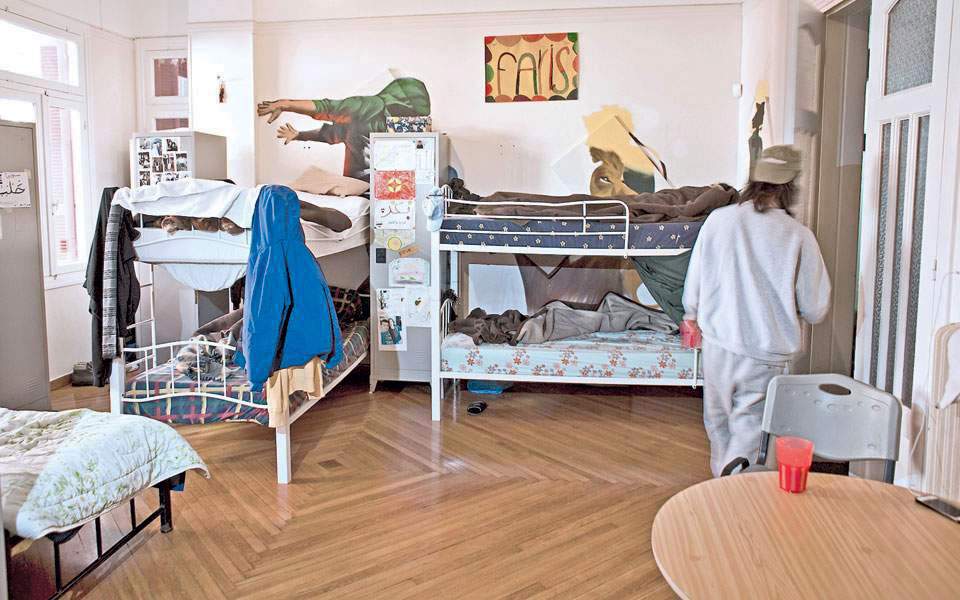
Children are the silent heart of the refugee crisis. More than half of the world’s displaced population comprises minors torn from their war-ridden homelands who cross European borders in search of security and well-being. Many are unaccompanied and particularly vulnerable, prone to exploitation or violence similar to that they are fleeing. With the closure of the Greek borders, it is estimated that 2,100 children remain homeless and stranded in the country.
At the same time, an eight-year financial crisis has led to the creation of another problem in the Athenian urban landscape: numerous uninhabited and often abandoned buildings across the center of the city, in various states of continuous decay.
Where most people would detect two unrelated problems, Sofia Kouvelaki envisioned a solution that would benefit everyone. Kouvelaki is the head of the Home Project, a nongovernmental organization that aims to provide security, support and social inclusion services to young refugees arriving in Greece. The principal tool of the initiative is the organization’s shelters: 11 formerly abandoned buildings which the initiative has rented and refurbished, converting them into welcoming homes for unaccompanied minors.
The organization is new but very prolific – just one year after its launch, the Home Project is already hosting 220 children in its shelters, offering a holistic program of support and education. Before arriving at the shelters, the children have experienced a storm of traumatic experiences – many have lost their families, endured months languishing in inhumane conditions or have been trapped for months in overcrowded refugee camps on the Greek islands. However, in the shelters operated by the Home Project, they are gradually remembering how to smile.
“One of the fundamental pillars of our organization is that in order to maximize our impact, we need to create a win-win situation,” explains Kouvelaki. “Everybody has to benefit – both the young refugees, who are the organization’s undeniable priority, as well as Greeks and the city itself.” Indeed, the Home Project identifies decaying Athenian buildings and proceeds to renovate them at minimal cost, transforming them into functional homes, and – beyond the humanitarian purpose – adding significant economic value. “We take care of the property tax and also pay rent every month, so we support the Greek property owners. We view them as partners,” adds Kouvelaki.
The Home Project’s philosophy of mutual benefit is also symbolically reflected in its personnel: Fifty percent of its workers are from the refugee community, while the other half comprises young Greeks – the organization doing its bit to help ameliorate the high youth unemployment.
It is not by accident that the buildings which the organization utilizes are scattered across downtown Athens – this is aimed at encouraging organic social inclusion and minimizing the chances of institutionalization or the creation of segregated areas. “We deliberately seek houses in downtown Athens, so that the children can use all the services that the city generously offers: things like gyms, open schools and cultural centers,” says the organization’s director. “It is important for us to not only forge a symbiosis with the neighborhood, but also a relationship of support and reciprocity, a sense of cooperation, synergy and affection with the local Athenians who surround our homes.”
Apart from providing accommodation and support, the Home Project’s shelters serve another key purpose: They are tools for initiating an important dialogue with Greek society and generating empathy in a population whose initial instincts are often less than welcoming. In one of the first Home Project shelters, located in the neighborhood of Aghios Panteleimonas, while children and carers were hosting a New Year’s Eve celebration, an elderly neighbor charged into the building with her son, who had recently lost his job. Together, they began to aggressively express their discontent with the initiative. “At that point we tried to calm them down,” Kouvelaki recounts. “We invited them in, offered them a drink and a snack, and started to explain the organization’s philosophy. Then we decided to introduce one of our children, Hamid, a 10-year-old boy who left his country at the age of 6.” Young Hamid reached Greece all the way from Afghanistan on foot, escaping violence and death threats.
What followed was a radical change in the woman’s behavior. Bewildered, she expressed shock at how young children could end up alone in the city, and asked the staff what she could do personally to contribute. From that day on, she began to cook regularly for the shelters, and would go as far as to inform the carers about any children that broke the curfew. Similar incidents occur quite frequently at the Home Project’s shelters, which not only care for refugee children but also mobilize the Athenian neighborhoods that surround them. On an average day one can witness young migrants joining forces with volunteers and local residents in various projects: from painting walls in vibrant colors, to cooking and distributing food to vulnerable families in the area. The kids receive care, but they also share it.
“If we all start remembering what it means to be human, some of the toughest obstacles to the integration of refugee children in Athens start to fall away,” concludes Kouvelaki, with a tone of admirable optimism in her voice.
